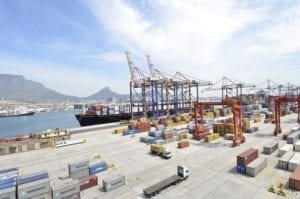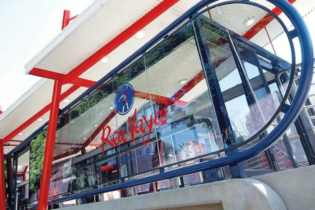Transport World Africa weighs up the merits of the Port of Cape Town, a full-service general cargo port that includes the second busiest container terminal in Southern Africa.
The Cape Town Container Terminal is now primarily viewed as a reefer terminal, renowned for the export of deciduous fruit, perishables and frozen products. Port infrastructure allows for this time-sensitive cargo to leave inland terminals/pack houses and arrive at their chosen destination in peak condition. Transnet Port Terminals (TPT) has developed sufficient reefer stack capacity for the terminal and continues to expand on reefer capacity in line with demand. Current reefer capacity is 3 752 points. Getting smartTPT says it has developed a solution that augments the terminal operating system. An automated email is sent whenever an operational reefer enters the yard and is not plugged in within an hour. This helps prevent perishable goods being spoilt. Transnet National Ports Authority (TNPA), meanwhile, has made provision for energy supply to the terminal, for both current and future electricity demand. “More broadly speaking, we have taken a major step to convert our marine systems to ‘smartPORTS’ with the implementation of our IPMS (Integrated Port Management System). It replaces previous paper trails with electronic data interchange processes to improve operational efficiency,” says Sipho Nzuza, port manager. Transnet is working to optimise port land utilisation, and is deploying advanced technology and equipment in operations in order to increase capacity across its ports and terminals – to ensure that capacity is created ahead of demand. The establishment of a planning centre, with particular focus on the container sector, will ensure that South African ports continue to be attractive to all shipping lines. An operational centre will help with monitoring and influencing the logistics of the Western Cape and beyond to bring improvements to the freight logistics chain. This will entail the setting of performance objectives with players in terminal, marine, haulier and rail operations. The centre will monitor the logistics chain proactively to prevent bottlenecks and problems to improve efficiencies on a continuous basis.
Warding off the doctor
During the winter months (April to September), north and northwesterly winds backing to the south-west are frequent. Westerly gales can cause heavy range action at berths; in the summer (October to March), the prevailing wind is from the south-east – popularly known as the Cape Doctor, which can reach gale force at times.







